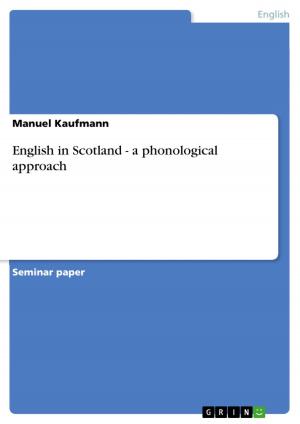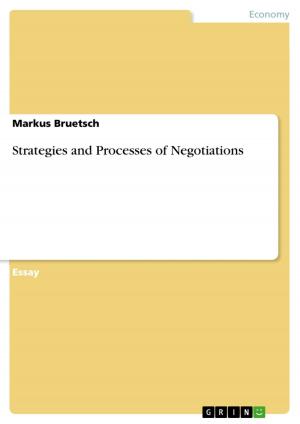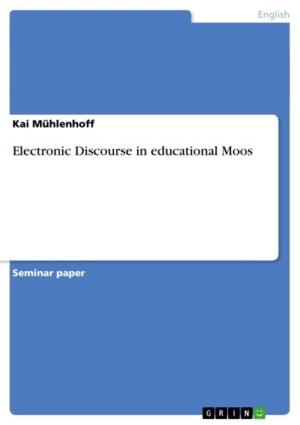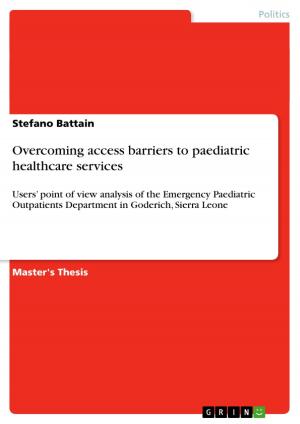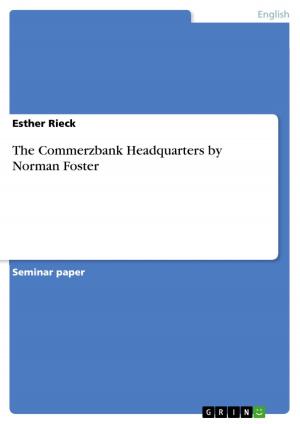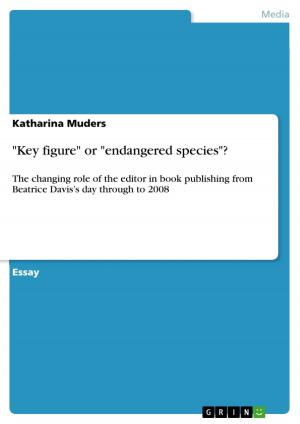Can Strawson's Objectivity Argument Prove Outer Objects?
Nonfiction, Religion & Spirituality, Philosophy, Modern| Author: | Anonymous | ISBN: | 9783638347341 |
| Publisher: | GRIN Publishing | Publication: | February 6, 2005 |
| Imprint: | GRIN Publishing | Language: | English |
| Author: | Anonymous |
| ISBN: | 9783638347341 |
| Publisher: | GRIN Publishing |
| Publication: | February 6, 2005 |
| Imprint: | GRIN Publishing |
| Language: | English |
Essay from the year 2003 in the subject Philosophy - Philosophy of the Present, grade: 73 (=1st), University of Nottingham (Department of Philosophy), course: Transcendental Arguments, 6 entries in the bibliography, language: English, abstract: This essay is concerned with a part of Strawson's book on Kant's Critique of Pure Reason, 'The Bounds of Sense' (1966). The chapter in question deals with a wellknown part of Kant's theoretical philosophy, the Transcendental Deduction. However, Strawson disengages his arguments from some of Kant's doctrines. His objectivity argument can therefore be argued to stand on its own feet.1 Unfortunately, this does not make his reasoning more pursuable. Strawson sketches a connection between unity of consciousness, on the one hand, and experience of objects, on the other hand, but gives different versions of this connection; what assumptions it presupposes; what it implies; and, above all, how it can be established. The anti-sceptic purpose of the argument is particularly controversial, since Strawson's proclamations remain vague. This essay aims to construct an argument out of, rather than to give a complete exegesis of Strawson's partly enigmatic reasoning. To begin with, I will first introduce the notions of scepticism and transcendental argument. I will then outline what Strawson's argument is about. Thereafter, I will look at significant notions involved in Strawson's essay, in order to complete the argument. These notions are selfconsciousness and self-ascription; intuitions and concepts; is and seems; and objectivity. Then, I will discuss the conclusion the argument purports to establish, and argue that it fails. My final remark is concerned with other possible ways of reading the argument, which (despite its failure) inaugurate anti-sceptical strategies.
Essay from the year 2003 in the subject Philosophy - Philosophy of the Present, grade: 73 (=1st), University of Nottingham (Department of Philosophy), course: Transcendental Arguments, 6 entries in the bibliography, language: English, abstract: This essay is concerned with a part of Strawson's book on Kant's Critique of Pure Reason, 'The Bounds of Sense' (1966). The chapter in question deals with a wellknown part of Kant's theoretical philosophy, the Transcendental Deduction. However, Strawson disengages his arguments from some of Kant's doctrines. His objectivity argument can therefore be argued to stand on its own feet.1 Unfortunately, this does not make his reasoning more pursuable. Strawson sketches a connection between unity of consciousness, on the one hand, and experience of objects, on the other hand, but gives different versions of this connection; what assumptions it presupposes; what it implies; and, above all, how it can be established. The anti-sceptic purpose of the argument is particularly controversial, since Strawson's proclamations remain vague. This essay aims to construct an argument out of, rather than to give a complete exegesis of Strawson's partly enigmatic reasoning. To begin with, I will first introduce the notions of scepticism and transcendental argument. I will then outline what Strawson's argument is about. Thereafter, I will look at significant notions involved in Strawson's essay, in order to complete the argument. These notions are selfconsciousness and self-ascription; intuitions and concepts; is and seems; and objectivity. Then, I will discuss the conclusion the argument purports to establish, and argue that it fails. My final remark is concerned with other possible ways of reading the argument, which (despite its failure) inaugurate anti-sceptical strategies.

